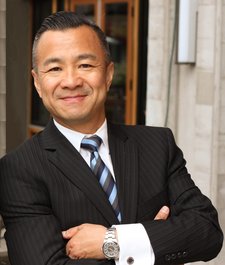
By Lora Grady
Aug. 19, 2024
Amid high inflation and the rising cost of raising children, grandparents are helping younger generations with everyday expenses — but some may be risking their own retirement savings in the process.
A recent RBC survey of 1,508 Canadian grandparents aged 55 and older found that 21 per cent are supporting at least one adult child (25 and up), and 30 per cent have provided money to their grandchildren.

iStock-1217050720
“This money is being used for ‘need to haves’ not ‘nice to haves,’ ” says Craig Bannon, director of RBC’s financial planning centre of expertise. In fact, 54 per cent of those providing financial assistance are providing more money due to rising costs, and 58 per cent are helping to cover expenses such as food and clothing.
Seventy per cent of those providing help say they’re expected to cover necessary costs when their adult child or children can’t afford it.
“Families struggling with the high cost of living are leaning on grandparents to help out and this is placing more pressure on these older family members,” says Bannon.
The cost of living is indeed a huge factor in this trend, says Nancy Grouni, a financial planner at Objective Financial Partners in Markham.
“The consumer price index rose 3.9 per cent on an annual average basis in 2023, and that was following a 40-year-high increase of 6.8 in 2022,” she says. Unfortunately, average earnings have simply not kept pace with the cost of living, she adds.
That’s why Diane Kellett, 67, is always willing to help her two adult children and grandchildren when they’re struggling.
Both grandchildren, 15 and 16, need their wisdom teeth removed and the dental procedure isn’t covered by the Ontario Health Insurance Plan (OHIP). Her daughter can’t afford the costs, so Kellett has offered to pay.
“It’s not money for them to go buy candy,” says the Minden, Ont., resident, adding, “I honestly don’t know how families are getting by without help.”
Grouni says she’s observed many grandparents providing money to adult kids and grandkids. “On one hand, it’s very heartwarming to see grandparents’ earnest desire to help their grandkids,” she says. “But if this is done without thoughtful planning, it may result in grandparents being unable to fund their own retirement costs.”
Before grandparents provide any financial support to others, it’s crucial for them to understand how it may impact their day-to-day cash flow and savings, Bannon says.
He was concerned to see that of the grandparents who’ve given money to kids and grandkids, just 37 per cent have reviewed their finances to see what they could actually afford to provide, and only 20 per cent have considered how this support could impact their retirement plans. Alarmingly, a third are worried they will run out of money to maintain support and cover their own costs.
“The closer these grandparents get to retirement, the bigger the impact unplanned costs can have on their retirement savings. The risk is more immediate for those who are already retired and living on a fixed income,” Bannon says.
Some may have to consider delaying retirement, while those approaching or already in retirement may have to downsize to free up cash. Retirees may even need to take on part-time work.
“It’s very important to keep track of all expenses to help ensure a comfortable balance between what these grandparents want to provide and the assistance they can actually afford,” Bannon says.
A conversation with a financial adviser can help grandparents explore all options available to them, he adds, and help ensure they have a financial plan in place that includes how much money they expect to provide to younger family members.
“See how that matches your current and anticipated future cash flow,” he says. Once you get that plan set up, check it regularly to stay on track.
“We all tend to make decisions based on emotions. So I understand the strong urge to give may surpass what logic dictates at times,” Grouni says. “But it’s a good idea to be thoughtful and intentional about gifting.”
A lot of the planning Grouni does for clients these days involves helping grandparents figure out exactly how much can they afford to gift without infringing on their own retirement needs — and how to structure those contributions.
Grouni recommends establishing a Registered Education Savings Plan (RESP) as soon as a child (or grandchild) is born. “This is a tax-deferred account that’s set up to help save for a child’s post-secondary education,” she explains. The government will provide a grant of 20 per cent on the first $2,500 in annual personal contributions to an RESP, plus up to 20 per cent on the first $500 of annual personal contributions. Those savings can make a massive difference in helping to fund post secondary costs, Grouni says.
Grouni also suggests looking into the First Home Savings Account (FHSA), a registered savings plan to help individuals save for their first home. “It’s another fantastic way for grandparents to give to their adult kids and grandkids,” she says. The contributions are tax deductible, and the earnings in the account grow tax-free.
Another great gifting vehicle, Grouni says, is a Tax-Free Savings Account (TFSA), which a grandchild can open when they turn 18. As money is contributed, earnings grow tax-free. A Registered Retirement Savings Plan (RRSP) can be another good way to gift.
“Gifting more intentionally can be so rewarding,” Grouni says, “because you’re also teaching your kids and your grandkids the benefits of saving and investing and how those yield long-term rewards.”
In addition to sound financial planning and intentional gifting, communication is key when it comes to finances and family.
Bannon recommends having open discussions with adult children early and often. Good communication helps to ensure expectations are clearly understood, and existing or upcoming financial support doesn’t place an unmanageable strain on your own resources.
It’s also a good idea for adult children and grandchildren to have some education when it comes to financial planning and how to manage their own cash flow, Grouni says. “That might be money well spent to help them get up and running and really develop that lifelong habit of saving and investing.”
While her grandkids work their first part-time jobs this summer, Kellett is working to ensure they understand the difference between a need and a want.
“I’ve told them: ‘I will always give you what you need, but what you want is your responsibility.’ ”


